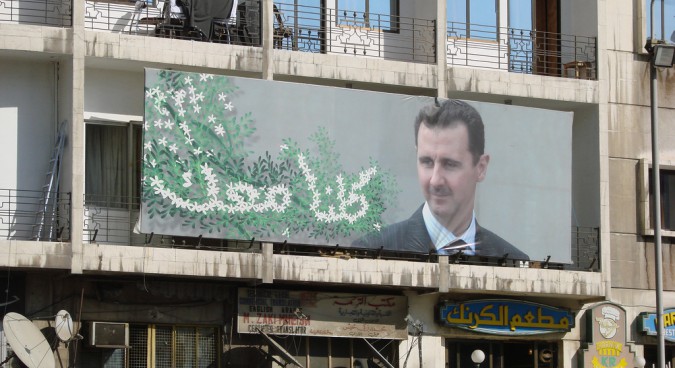
Syria, Iran among N. Korea’s “resilient” customers – Berger
New book highlights areas of ongoing cooperation despite sanctions regimes
North Korea has continued trafficking arms and expertise to numerous countries after the 2006 impositions of sanctions, according to a new book by Andrea Berger at the Royal United Services Institute (RUSI) entitled “Target Markets: North Korea’s Military Customers in the Sanctions Era”.
The 160 page document highlights how the DPRK’s potential customers can be divided into three different categories, the most of “resilient” of which are unlikely to be dissuaded by sanctions regimes alone.
“Syria, Iran, Uganda, the Democratic Republic of the Congo (DRC), Burma and Cuba have been steadfast, continuing to contract out to Pyongyang for arms and related materiel and services in spite of taboos and legal restrictions against doing so,” the book reads.
North Korea leverages long standing relationships with many of these countries to engage in sanctions breaking behaviour. In doing so it has likely transferred weapons systems, their designs, provided training and maintenance services and even personnel to its more resilient customers.
Syria is likely one of North Korea’s most long standing collaborators, with numerous recent interactions including help with Damascus’ chemical weapons programs, shipments of chemical protection suits, gas masks as well as missile and conventional weapon parts.
Military cooperation with Damascus could be ongoing since the outbreak of the Syrian civil war in 2011. The report cites the director of the Syrian Observatory for Human Rights, who claims a small number of North Korean officers are currently providing support for Syrian President Bashar al-Assad’s forces in the country.
It might be difficult for sanctions regimes alone to pry apart these long standing relationships, the book notes, as participants are fully aware of the measures in place to prevent trade in sanctioned items.
“Resilient customers by their nature are not as sensitive to the normative and legal pressures created by the sanctions regime. In most cases, concerns vis-a-vis resilient clients also extend far beyond the North Korea military issue,” Berger told NK News.
“As a result, it is highly unlikely that any outreach by governments or the UN on the North Korea matter alone will dissuade those actors from shopping in Pyongyang,” she continued, adding that fully cutting ties between the DPRK and a resilient client country would require wider ranging political or security changes.
The DPRK has also cultivated different markets and groups of buyers, shifting its primary business away from ballistic technology to smaller arms and other weapons systems as demand changed over time.
According to the paper, some countries or non-state groups would likely prefer to buy from other sources, given current sanctions regimes and political pressures, but found that previous military aid or purchases have made them reliant on the DPRK’s catalogue.
One last group also exists which includes countries like Eritrea and the Republic of Congo, whose limited budgets mean they need to extend the functionality of existing supplies as long as possible.
“These clients seem to have been largely motivated by the need to keep certain types of ageing weapons systems or production technology in service, and North Korean willingness to provide that assistance economically,” the report adds.
TECHONLOGICAL PROGRESS
While current sanctions against the DPRK might not dissuade their long standing customers, the report also notes that they do serve to cut North Korea off from cutting edge military technologies.
This could limit North Korea’s R&D departments, forcing them to upgrade existing systems or reverse engineer what can be sourced from abroad. According to the paper, the constraints could cause the DPRK to fall ever further behind the curve, reducing their number of existing and potential customers over time.
“The trend is already visible in markets such as Ethiopia, which is phasing out the T-54/55 tanks that North Korea previously assisted with, in favour of newer but still second-hand T-72 tanks from countries such as Ukraine.” Berger added.
“Within the next decade or two many more doors will likely close for North Korea, as its prospective clients will find it enormously difficult, if not impossible, to keep mid-Cold War era weapons systems in service.”
The report concludes that without further access to new technologies, Pyongyang may find itself ever increasingly marginalised in the global defense market.
Featured Image: Bashar al-Assad propaganda by watchsmart on 2007-09-25 21:19:37